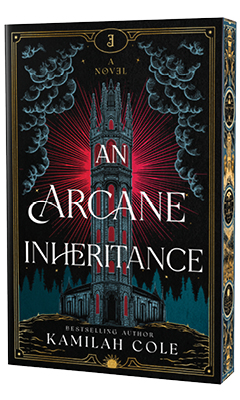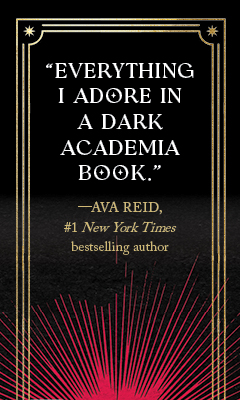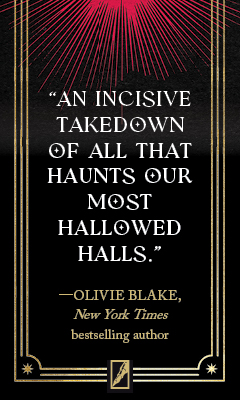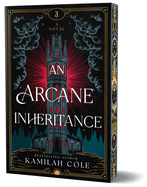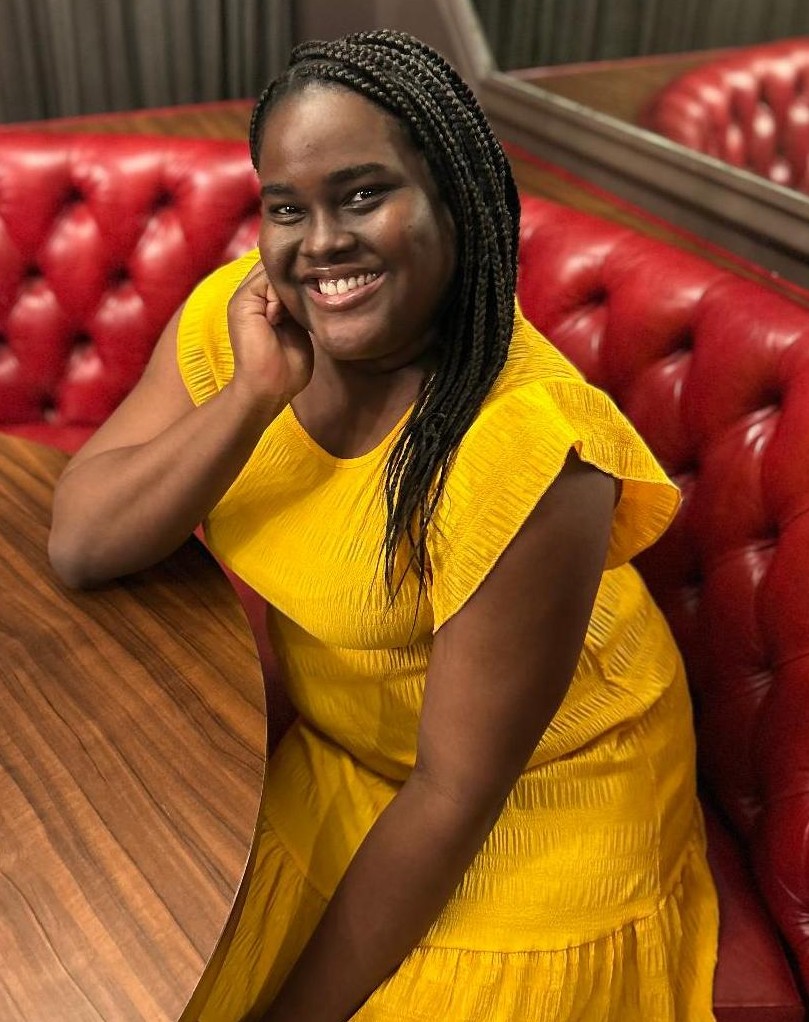An Arcane Inheritance
by Kamilah Cole
Dark academia gets a 21st-century makeover in Kamilah Cole's brilliant An Arcane Inheritance, complete with a fictitious Ivy college, whispered ghost stories, a powerful Black female lead and incisive reflections on the intersections of class, race, and power in higher education and beyond.
Ellory Morgan was sent by her Jamaican parents to live with an aunt in the U.S. at a young age, cloaked with the expectations of success and financial freedom. "Every second Ellory spent in this country was devoted to building a future that seemed further out of reach the closer she supposedly got," emphasized by her inability to get any kind of scholarship or financial aid to support her parents' dreams of higher education. She is forced to defer enrollment until she can save up enough to begin classes, so when an unsolicited offer of a full ride arrives from Warren University, she leaps on the opportunity to attend as a Godwin Scholar. At the predominantly white, exceptionally wealthy Ivy League school, Ellory feels out of her depth as soon as classes begin, despite having "like most Black women... a lifetime of microaggressions to prepare her for Warren University." Her sense of worry and vague apprehension grow as the early weeks of the semester prove stranger and stranger: "déjà vu had become a presence as constant as her shadow. And every time she tried to rationalize it, to ignore it, it returned more insidiously than before."
Warren's history contextualizes Ellory's experiences there, which begin to feel increasingly inexplicable and otherworldly as Cole builds the premise of An Arcane Inheritance with great care. The school was founded in 1954 by former members of the New England Society for Psychic Research as the School for the Unseen Arts, a name that lasted just a month before being changed to the blander and more palatable "Warren University." Unsurprising, then, that the school is marked with tales of ghosts and specters, occultism and witchcraft, further fueled by the number of missing students amassed over the school's history: "the Lost Eight."
Ellory, meanwhile, has had a touch of the mystical in her life since childhood, though her family discouraged her talk of spirits: "She stifled any magical potential to pursue a concrete future, proving her worth with grades and certificates, ribbons and trophies." But something at Warren seems to be re-awakening that part of her, a fact only too clear when she finds a tattoo on her neck that she has absolutely no memory of receiving. Then the ink disappears.
With her mind a seemingly "unreliable thing, an Etch a Sketch that shook itself clean at random," Ellory tries to figure out what's happening, opening herself up to the possibility of magical forces at play. What she finds in the process is a complex web of secrets and cover-ups, deeply rooted in racism and classism and perpetual power grabs--both figuratively and literally.
What if the power within such institutions was not purely metaphorical, but literal, magical power? "If you knew magic existed--if you could manipulate it to change the world--would you stop? Would you ever stop?" That kind of greed and desperation, Ellory reckons, reveals how people might act when no one is watching. "For most, this answer is shameful. And for those who have never before known what it is to want, this answer is downright chilling."
Cole uses this premise to great effect in An Arcane Inheritance, drawing on the secret societies, occult activities, and magical realism often seen in dark academia and twisting them to offer a sharp analysis of the many structural inequities at play within American institutes. As the forces behind Warren University's unusual success become more apparent to Ellory (and to readers), Cole probes the question of how those forces manifest for different students--with noticeably worse outcomes for students of color.
Any fantasy reader knows magic cannot exist without limitations; in the world Cole builds,that limitation comes in the price paid every time magic is wielded. ("For magic to live, something must die.... The world requires balance, and magic collects its debt in sacrifice.") But who makes that sacrifice, and who benefits from it, reveals layer upon layer of prejudice and injustice baked into the very foundations of Warren. While the school itself is fictional, it's not hard to extend this analysis to institutions of higher education in 21st-century headlines, making An Arcane Inheritance the best kind of fantastical reading: a novel that pulls you into a world where fiction and reality aren't quite as distinct as we like to believe. Smart, well-plotted, challenging, and often funny, An Arcane Inheritance is an irresistible story of ghosts, magic, and education combined to great, and horrific, effect. --Kerry McHugh



